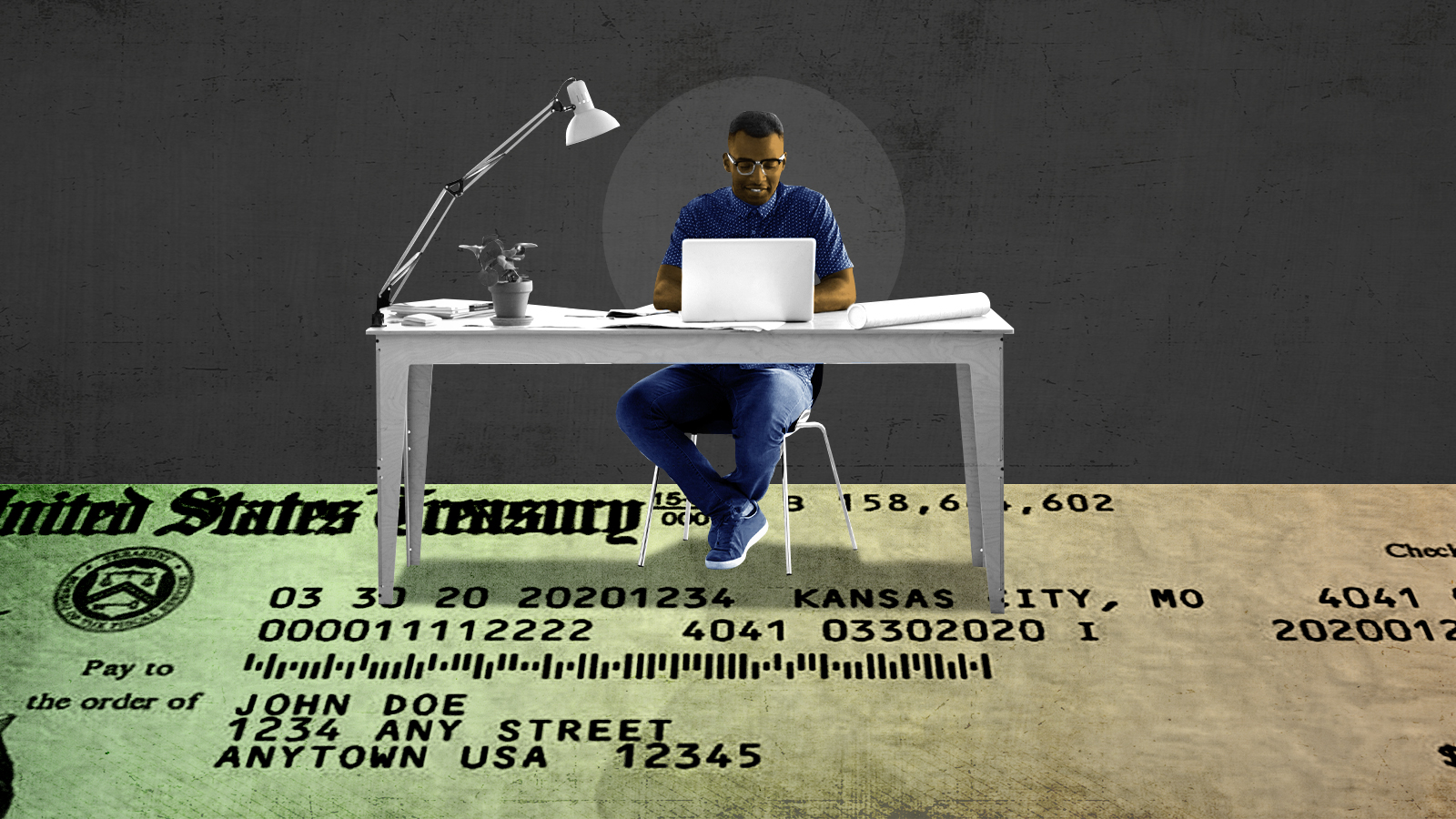America's pandemic-era social safety net boosted entrepreneurship. What's next?


A free daily email with the biggest news stories of the day – and the best features from TheWeek.com
You are now subscribed
Your newsletter sign-up was successful
You know what's good for capitalism? A strong social safety net.
Axios points out today that U.S. business startups boomed in 2021 — there were 5.4 million applications for new companies last year, a stunning 53 percent jump over 2019. Census data shows that business formation had been on a steady rise for most of the last decade, but really took off after briefly plunging during the first lockdown stage of the pandemic.
What caused this sudden burst of entrepreneurship? There are several factors, but a surge of government checks was a big help. One study last year from the National Bureau of Economic Research found that emergency stimulus checks and increased unemployment payments gave a number of would-be entrepreneurs — particularly African-Americans — the necessary financial cushion to strike out on their own.
The Week
Escape your echo chamber. Get the facts behind the news, plus analysis from multiple perspectives.

Sign up for The Week's Free Newsletters
From our morning news briefing to a weekly Good News Newsletter, get the best of The Week delivered directly to your inbox.
From our morning news briefing to a weekly Good News Newsletter, get the best of The Week delivered directly to your inbox.
That's understandable: Many businesses fail within the first year or two. Most people wouldn't take on the challenge if it meant risking their family's livelihood. A pandemic made the risk even scarier. "Founding a new enterprise, particularly amid an economic downturn and a high level of uncertainty, reflects both a choice and a capability on the part of an individual: a choice to seek an economic return and the ability to navigate an uncertain environment," the study's authors wrote. The emergency safety net packages passed first under President Donald Trump and then President Biden spread that capability far and wide.
A spike in business ownership is usually the kind of thing conservatives celebrate. Three of the last four Republican presidential nominees have been rich guys who built their fortunes (and reputations) on top of a foundation of inherited wealth and privilege. But the party has generally opposed giving a smaller-but-similar leg up to less-fortunate Americans, and have usually lobbed angry cries of "socialism" at proposed social programs, and warned against creating a "culture of dependency." Indeed, Republican-led states couldn't move fast enough to cut unemployment benefits last year.
But there's long been a capitalist argument for making America's safety net more robust. Supporters of "Medicare for all," for example, make the case that the program would reduce healthcare costs for new businesses. A 2014 paper indicated an expansion of the federal food stamp program helped increase entrepreneurship — even when new business owners weren't actually enrolled. "Simply knowing that they could fall back on food stamps if their venture failed was enough to make them more likely to take risks," The Atlantic reported.
Now we have more proof that a strong welfare state can be good for business. But the stimulus checks, unemployment benefits, and child tax credit payments of the pandemic era have mostly ended and their effects are fading away. Don't be surprised if American entrepreneurship fades with them.
A free daily email with the biggest news stories of the day – and the best features from TheWeek.com
Joel Mathis is a writer with 30 years of newspaper and online journalism experience. His work also regularly appears in National Geographic and The Kansas City Star. His awards include best online commentary at the Online News Association and (twice) at the City and Regional Magazine Association.
-
 Properties of the week: pretty thatched cottages
Properties of the week: pretty thatched cottagesThe Week Recommends Featuring homes in West Sussex, Dorset and Suffolk
-
 The week’s best photos
The week’s best photosIn Pictures An explosive meal, a carnival of joy, and more
-
 The ‘ravenous’ demand for Cornish minerals
The ‘ravenous’ demand for Cornish mineralsUnder the Radar Growing need for critical minerals to power tech has intensified ‘appetite’ for lithium, which could be a ‘huge boon’ for local economy
-
 Epstein files topple law CEO, roil UK government
Epstein files topple law CEO, roil UK governmentSpeed Read Peter Mandelson, Britain’s former ambassador to the US, is caught up in the scandal
-
 Iran and US prepare to meet after skirmishes
Iran and US prepare to meet after skirmishesSpeed Read The incident comes amid heightened tensions in the Middle East
-
 Israel retrieves final hostage’s body from Gaza
Israel retrieves final hostage’s body from GazaSpeed Read The 24-year-old police officer was killed during the initial Hamas attack
-
 China’s Xi targets top general in growing purge
China’s Xi targets top general in growing purgeSpeed Read Zhang Youxia is being investigated over ‘grave violations’ of the law
-
 Panama and Canada are negotiating over a crucial copper mine
Panama and Canada are negotiating over a crucial copper mineIn the Spotlight Panama is set to make a final decision on the mine this summer
-
 Why Greenland’s natural resources are nearly impossible to mine
Why Greenland’s natural resources are nearly impossible to mineThe Explainer The country’s natural landscape makes the task extremely difficult
-
 Iran cuts internet as protests escalate
Iran cuts internet as protests escalateSpeed Reada Government buildings across the country have been set on fire
-
 US nabs ‘shadow’ tanker claimed by Russia
US nabs ‘shadow’ tanker claimed by RussiaSpeed Read The ship was one of two vessels seized by the US military
